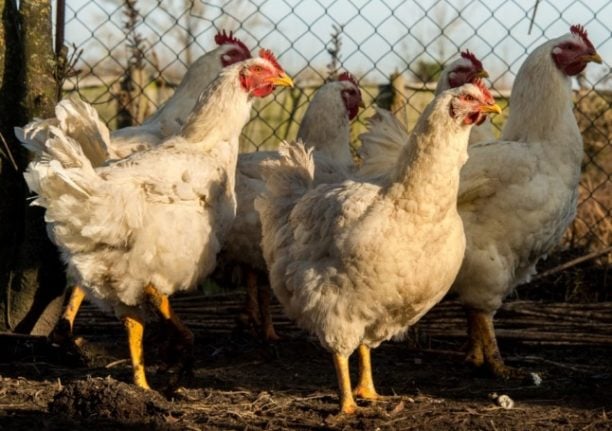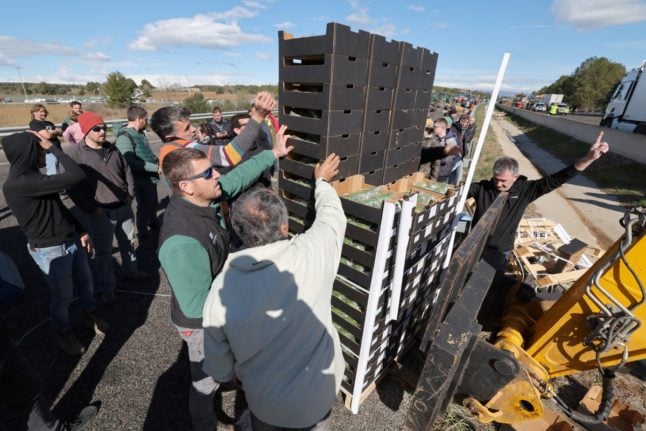The Agriculture Ministry reported virus clusters at 26 factory farms, mainly in the southwest — home to France’s lucrative foie gras pate industry — as well as 15 cases in wild fowl and three at barnyards.
Several European countries are now battling a highly contagious flu strain, H5N1, just a year after a similar virus decimated flocks.
Belgium and Britain have announced outbreaks, while Czech veterinarians said Wednesday that 80,000 birds would be culled at a single farm where over 100,000 animals have died from the virus since last week.
In France, the government ordered farmers in November to keep poultry indoors in a bid to stop the spread of the virus by migratory birds, though the first case was detected later that month, at a site in the north.
READ ALSO: France steps up duck cull as bird flu hits foie gras farms
The first case to strike the southwest, where most outbreaks are now located, came on December 16th, the ministry said.
Last winter more than 500 farms saw mass infections that prompted the culling of some 3.5 million birds, mainly ducks, prompting the government to spend millions of euros in compensation.
Poultry farmers had already been hit by massive bird flu outbreaks in the winters of 2015-16 and 2016-17.
READ ALSO: From frogs to foie gras: Your guide to French dinner etiquette



 Please whitelist us to continue reading.
Please whitelist us to continue reading.
Member comments